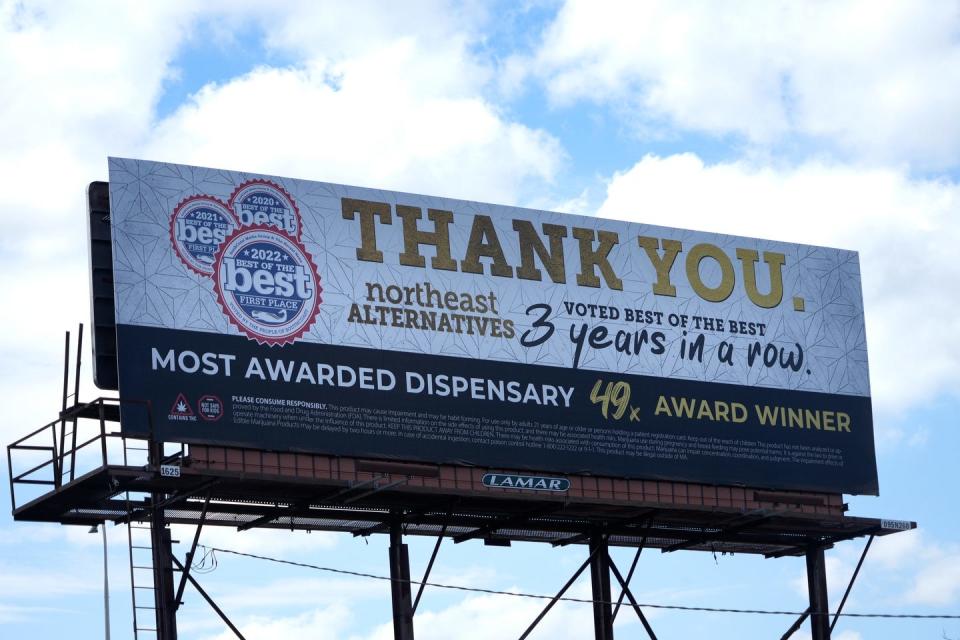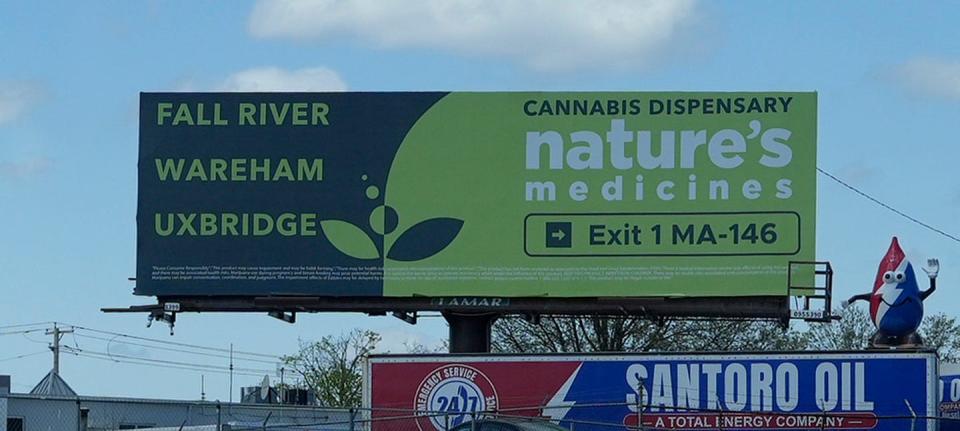The 'pot pie' of recreational marijuana is not as plump as those in the business had hoped
PROVIDENCE – For Rhode Island’s roughly 60 licensed marijuana cultivators, many of whom struggled to stay afloat waiting for lawmakers to approve recreational pot last year and expand their market, Dec. 1 could not come fast enough.
When recreational sales began that day, the state’s handful of dispensaries, where retail sales take place, promoted supply arrangements with some of the best local cultivators who mastered their horticultural skills over the years growing for medical marijuana patients.
But months later, some cultivators are worried. They say some of the state’s seven dispensaries are taking months to pay for their products even though a state regulation requires they be paid within 30 days unless some other arrangement has been made.

“In the last six to eight weeks, several of my clients have called with concerns that the compassion centers [as dispensaries were once known] are not paying in a timely fashion,” said lawyer Lisa Holley, who represents about half of the cultivators. “Some are taking 60 to 90 days” to pay. And some even longer, say others in the business.
Their complaint may be part of a bigger problem for Rhode Island marijuana businesses in general: a glut of marijuana in the market that kept product sitting longer on shelves and consequently retail prices dropping about 20% just in the last few months, say some cultivators and dispensary owners.
More: What you need to know about cannabis legalization in Rhode Island
Why local dispensaries can't advertise, yet Mass. pot shops blanket RI with billboards

There are a few reasons for that glut, but a big one, say some in the business, is the state's ban on outdoor advertising by Rhode Island dispensaries – even though Massachusetts pot stores face no similar prohibition and have erected billboards over Ocean State highways.
“There is a lot [of marijuana sitting unsold] because there is no advertising,” says Joseph Pakuris, co-owner of the Mother Earth Wellness dispensary in Pawtucket. “Someone like me, I should be doing double the amount of sales I am doing now, but everybody is still going to Massachusetts because nobody knows Rhode Island is selling weed yet because it’s not advertised.”
Matt Santacroce, deputy director at the Rhode Island Department of Business Regulation, supports lifting the advertising ban.
Unfortunately, he says, the law that legalized the sale of recreational marijuana last year “very clearly delegates that authority” to the newly proposed Cannabis Control Commission, which has yet to be formed.
Pakuris says something needs to happen immediately.
More: A still-paranoid '70s guy visits a RI cannabis store and finds a brave new world
“All they have to do is not enforce the advertising policy that everyone agrees doesn’t make sense and that they’re going to change anyway,” he says.
Pakuris says he has contractual agreements with his cultivators to pay them within 60 days. But some come to him earlier for payment because he says other dispensaries are not paying them quick enough and they have bills that need paying.
“Unless we’re able to advertise and let the market know that cannabis is legal here in the state and is available in the state, you’re going to see – my prediction – 10 to 20 cultivators by the end of the year go out of business.”

Too much product and not enough demand
Other reasons for the glut include the tightening economy and the drying up of COVID-19 relief dollars, leaving customers with less disposable income. The other reason giving is timing: some licensed cultivators all but shut down until the legislature approved recreational sales last May. Then all at once they all began growing marijuana, creating a surge in a market that has only seven dispensaries, including the three oldest, which grow their own marijuana.
With already limited sales opportunities, cultivators have been reluctant to go on record and file a formal complaint about late payment, fearing they would be shut out of future business by the dispensaries, representatives say.
"I think that adult-use marijuana in 2023 is a very different proposition than it might have been in 2016, 2017,” just before Massachusetts opened its first recreational stores in 2018, says Santacroce. And in a small state like Rhode Island, “there is a relatively fixed number of cannabis consumers.”
Marijuana sales have increased since people started buying recreational pot in December, but at the "slow and steady," pace expected, said Santacroce.
Total sales (including medical and recreational) went from almost $7.4 million in December, when recreational sales began, to $8.7 million in March.
Last month was also the first time recreational sales topped $5 million ($5.3 million).
But no one seems to be predicting any sudden major windfall in pot revenue (for cultivators, dispensaries, or for the state's sales tax coffers) under the current market realities.
Holley, the lawyer, agrees with Santacroce: “There’s only so many people who are going to consume cannabis” in Rhode Island.
Therefore, she said, folks in the pot business are looking at a pot pie with “smaller slices.”
Contact Tom Mooney at: tmooney@providencejournal.com
This article originally appeared on The Providence Journal: Too much pot and not enough demand: Can advertising save the industry?

